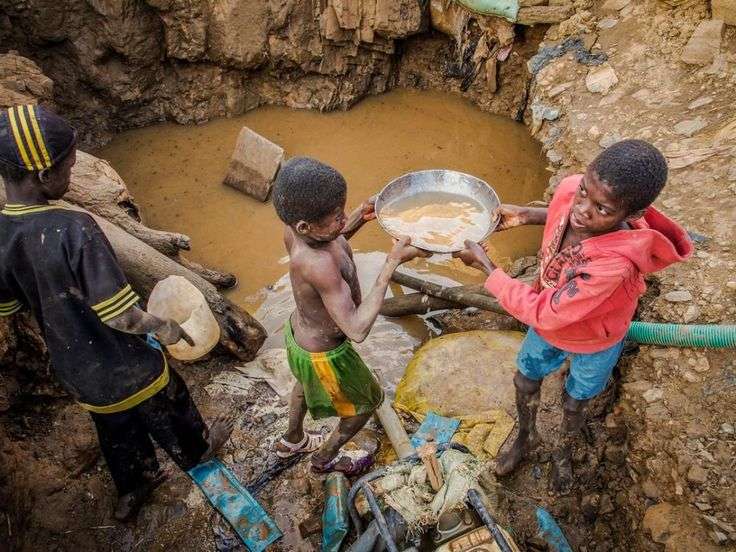People living in Ghana’s mining communities may now be better protected from deadly mercury poisoning.
On March 23, Ghana ratified the Minamata Convention on Mercury – a real step forward for communities affected by mercury pollution. Mercury, a toxic liquid metal, is used in small-scale gold mines all over the world to separate the gold from the ore, and then released into air and water. Ghana is one of Africa’s top gold producers, and about a million people work in its small gold mines. Workers and nearby communities are directly exposed to mercury.
The Minamata Convention was adopted by governments around the world in 2013 to protect the environment and people. Mercury causes brain damage and other severe health conditions, and it can kill. The convention obliges governments to reduce mercury use in artisanal and small-scale gold mining, the largest source of mercury pollution in the world. It also requires governments to end particularly harmful practices, such as burning a gold-mercury amalgam in residential areas, and to protect children from exposure.
When I researched mercury use in Ghana, I watched miners mix liquid mercury in pans filled with ore in order to attract the gold particles. They then held this gold-mercury amalgam over an open fire to burn off the mercury and retrieve the raw gold. Even children were working with mercury. One of them, 12-year-old “Kwame,” told me: “I burn it on my own, where I get fire, at my mother’s house or any place.” Kwame carried a small bottle of mercury with him at all times. He and his fellow miners had never been told about its dangers.
Up till now, Ghana’s government had a lax attitude toward mercury, allowing its sale and use. I visited a store where mercury was sold in small wrapped plastic balls, in plastic bottles, and in large containers too heavy to lift. Ghana was also notably absent when the convention was negotiated. But this has started to change. With donor support, Ghana has begun training health workers on mercury’s harmful effects and taken some steps to address child labor in its mines.
Ghana’s ratification of the Minamata Convention is good news for ordinary Ghanaians, especially its children. Now the real work of putting it into practice should begin.
Author: Juliane Kippenberg – Associate Director, Children’s Rights Division, Human Rights Watch



